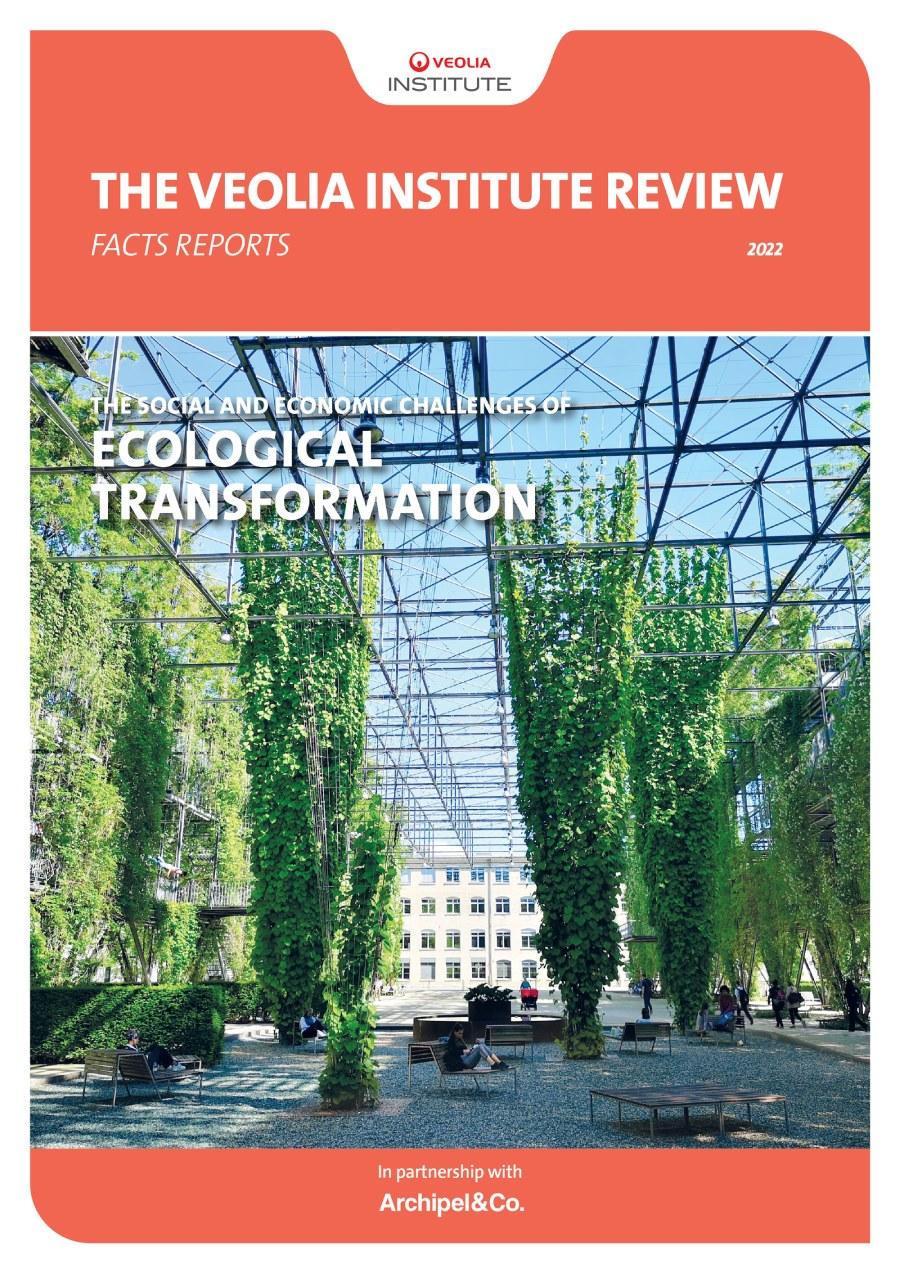Ecological transformation consists of radically changing the modes of production and consumption, to put ecology at the heart of every process and every evaluation.
The objective of this Veolia Institute Review is to better understand the notion of ecological transformation throughout the world, to clarify the issues at stake and to identify the conditions for accelerating a virtuous transformation process.
This new issue was produced in partnership with the innovation and impact entrepreneurship agency Archipel&Co.
> An open access review:
Discover:
- Foreword by Harvey V. Fineberg, Member of the Foresight Committee of the Veolia Institute
- Introduction by Nicolas Renard, Executive Director, Veolia Institute
In this issue, a reflection in three parts:
Understanding and reconciling the issues
The urgency to act on climate change is now known by a majority of citizens: 64% of respondents to the largest opinion poll on climate change (50 countries, 1.2 million respondents) consider climate change as a global emergency.
Reinventing our modes of production and organisation
While there is growing consensus on the diagnosis, the implementation of the ecological transformation is a different matter. The debates are intense between those who consider the decoupling of GDP growth and greenhouse gas emissions to be possible and those who, on the contrary, condemn this vision as unrealistic and likely, in their opinion, to lock us into our current models.
Accelerating our actions
The reactions of our societies to the environmental challenge appear ambivalent, marked as much by a form of resistance and avoidance as by a proactive movement towards change. Reflecting these evolutions of variable temporality and geometry, the solutions of ecological transformation are heterogeneous and unevenly adopted across continents. Several conditions seem to be key to making them sustainable and moving from a sectoral logic to a large-scale transformation, in keeping with the systemic dimension of the climate challenge.
The authors (in the order of the journal's contents): Harvey V. Fineberg, Gordon and Betty Moore Foundation; Nicolas Renard, Veolia Institute; Iris Levy, Mathilde Martin-Moreau and David Ménascé, Archipel&Co; Dominique Bourg, Lausanne University; Sébastien Treyer, Institute for Sustainable Development and International Relations; Dr. Patrick Schroeder et Dr. Jack Barrie, Chatham House; Pascale Taminiaux, King Baudouin Foundation; Sara Trærup, UNEP-Copenhagen Climate Cente; Fabrice Bonnifet, Bouygues Group; Sangji Lee, UNDP; Maud Texier, Google ; Ilan Cuperstein, C40 ; Pauline Detavernier and Nils Le Bot, AREP; Serge Morand, CNRS-Cirad; Anna Lennquist, ChemSec; Laurent Obadia, Veolia; Mark Gough, Capitals Coalition; Priscilla Negreiros, Climate Policy Initiative; Annika Hedberg and Stefan Šipka, European Policy Centre; Liam Smith, BehaviourWorks Australia; Vanessa von der Heyde, Sustainability Institute ; Jeremy Doyle, Stellenbosch University; Arie Lengkeek and Carolina Mano Marques, Art Climate Transition.


